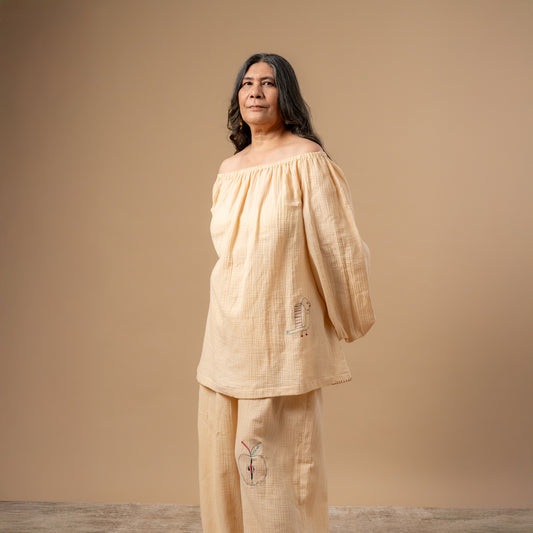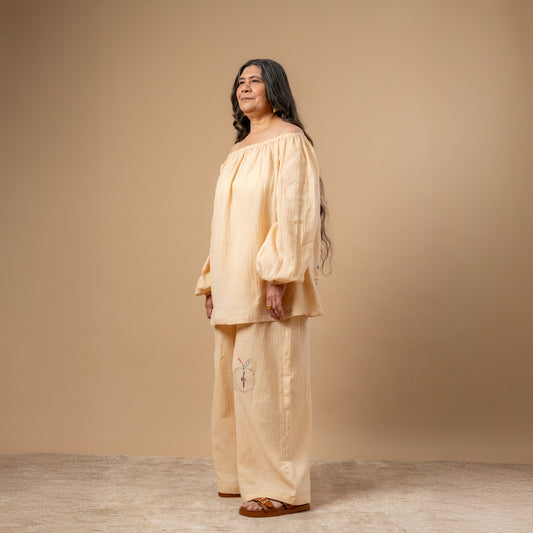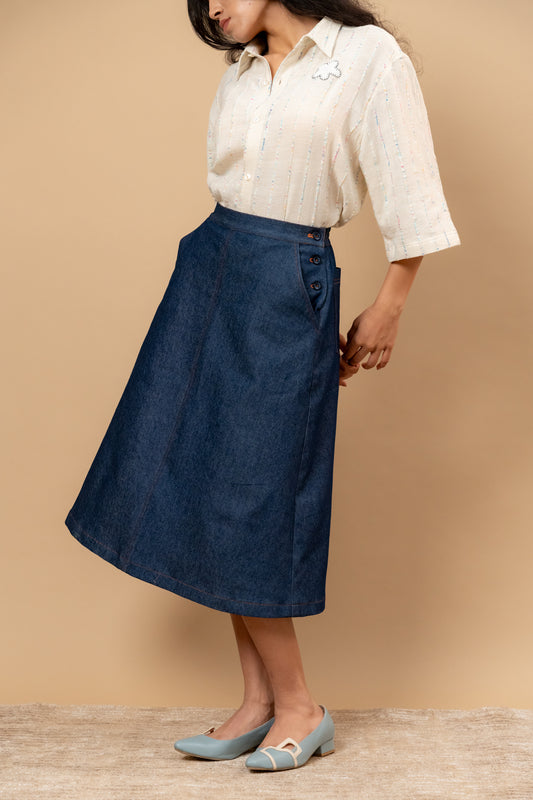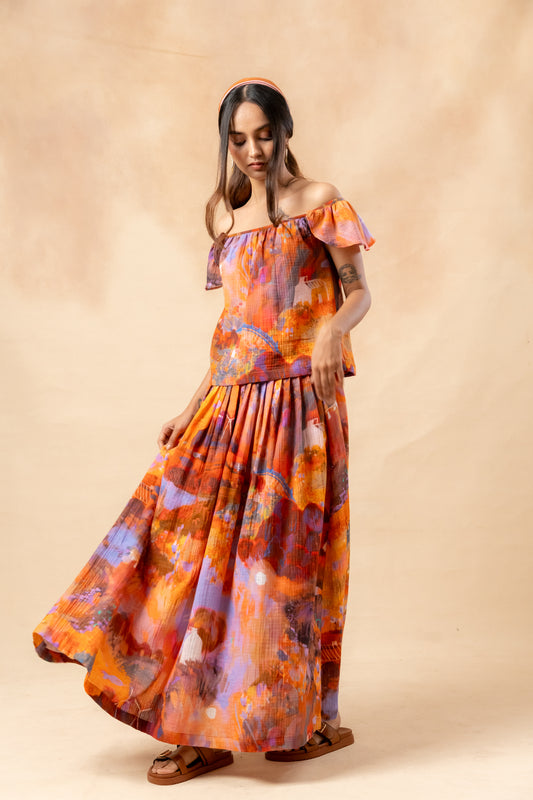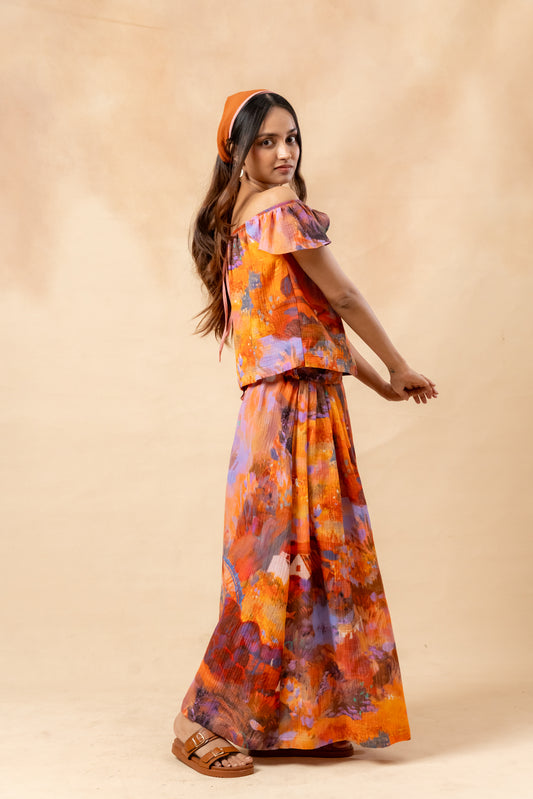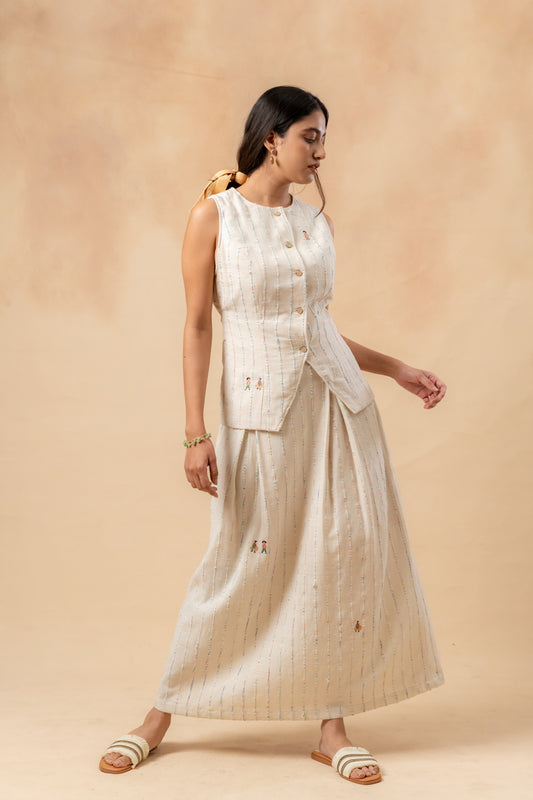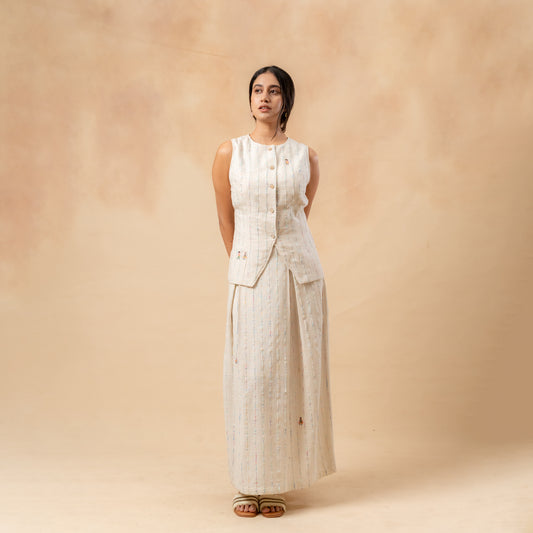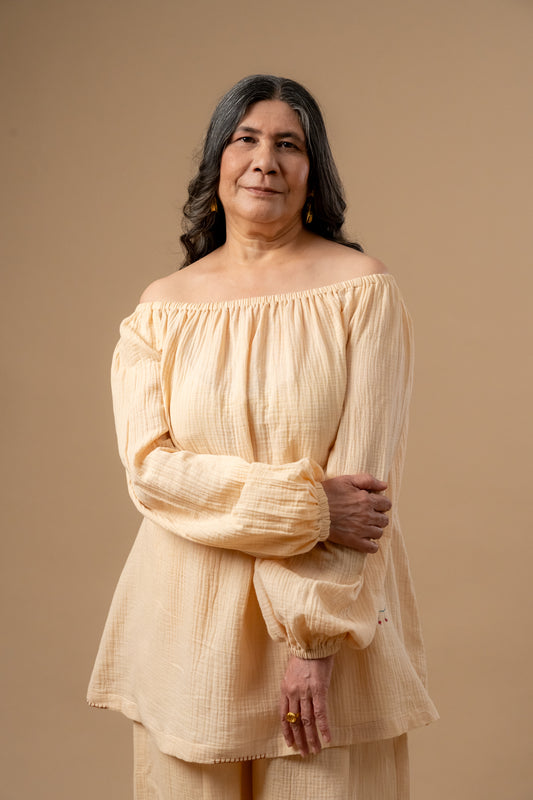
Doodlage
Raised in the 90s in India, Kriti and Paras, co-founders of Doodlage, grew up in an era where upcycling was a deeply rooted tradition among middle and upper-middle class families. Garments were cherished, and each piece lasted longer than expected. The culture was not wasteful, and disposability was less common, as people generally had less money to spend. This period was considered beneficial for the Earth, according to Kriti.
Paras reflects on the shift that occurred with the push for increased production in textiles and agriculture during industrialization. This was aimed at boosting employment and producing goods at the lowest possible rates for international markets. However, this shift led to a disregard for natural resources and the careless disposal of hazardous waste. As a result, fashion became cheap and affordable, but the long-term costs are being borne by the environment today.
Doodlage operates on principles that counteract these issues. The company specializes in upcycling factory waste into short, limited edition collections and recycling post-consumer waste and post-cutting scraps into new fabrics. These efforts result in season-less, well-finished garments designed for longevity. Waste products are segregated and repurposed into accessories, soft furnishings, and paper for packaging or stationery products. Doodlage is committed to ethical production practices and uses plastic-free packaging. They offer a service for individuals looking to declutter their wardrobes, taking responsibility for items that are no longer wanted or fit.
Products from Doodlage
-
Firefly flicker | Co-ord Set
Regular price $306.00 CADRegular priceUnit price / per -
Firefly Flicker | Flared pants
Regular price $153.00 CADRegular priceUnit price / per -
Starglade | Denim Skirt
Regular price $102.00 CADRegular priceUnit price / per -
Little leaf | Co-ord Set
Regular price $281.00 CADRegular priceUnit price / per -
Little leaf | Printed Skirt
Regular price $153.00 CADRegular priceUnit price / per -
Margaret | Upcycled Cotton Skirt
Regular price $224.00 CADRegular priceUnit price / per -
Margaret | Handwoven Waistcoat
Regular price $199.00 CADRegular priceUnit price / per -
Firefly Flicker | Off-Shoulder Top
Regular price $153.00 CADRegular priceUnit price / per

